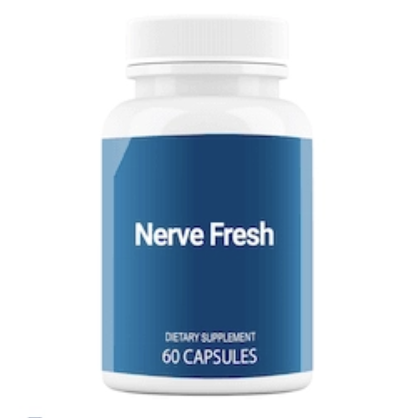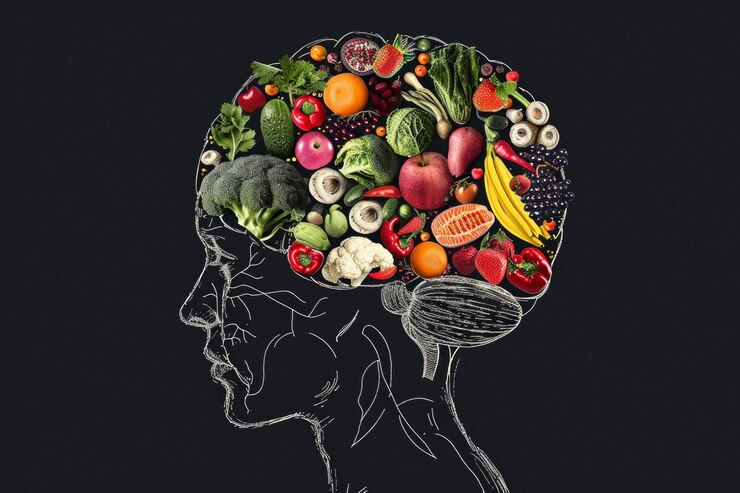“The link between food and mental health presentation is profound, As food provides essential nutrients that influence brain function and the production of neurotransmitters like serotonin and dopamine”. A balanced diet supports mental clarity, emotional stability, and overall mental health, while poor nutrition can contribute to issues like anxiety and depression.
A nutritious diet is a cornerstone of mental health, offering benefits such as mood stabilization, improved cognition, and reduced risk of disorders. By making informed dietary choices, individuals can nurture their minds and foster long-term mental well-being.
Table of Contents
The Link Between Food and Mental Health: A Presentation Guide With 8 Secrets
1. Understanding the Connection

A. Overview of Food’s Role in Mental Health
– Food provides the building blocks for neurotransmitters like serotonin and dopamine, essential for mood regulation.
– Nutritional deficiencies are linked to disorders like depression, anxiety, and cognitive decline.
– A balanced diet promotes stable energy levels and emotional resilience.
B. The Science of the Gut-Brain Axis
– The gut and brain usually communicates through the vagus nerve and type of chemical signals like neurotransmitters.
– Gut microbiota play a crucial role in producing serotonin (about 90% is synthesized in the gut).
– A healthy gut supports brain health, while an unhealthy gut can contribute to inflammation and mood disorders.
Key Nutrients for Mental Health
A. Omega-3 Fatty Acids
– Found in fatty fish (e.g., salmon, mackerel), walnuts, and flaxseeds.
– Essential for brain cell membrane health and reducing inflammation.
– Linked to lower rates of depression and improved cognitive function.
B. Complex Carbohydrates
– Sources: Whole grains, fresh fruits, and vegetables.
– Provide a steady supply of glucose, which is brain’s primary energy source.
– Stabilize mood by preventing blood sugar spikes and crashes.
C. Vitamins and Minerals
1. B Type Vitamins (e.g., B6, B12, Folate)
– Found in leafy greens, eggs, and fortified cereals.
– Vital for producing neurotransmitters and reducing brain fog.
2. Magnesium
– It is found in nuts, seeds, and dark chocolate.
– It helps to regulate the nervous system and manage stress.
3. Zinc
– Usually found in meat, shellfish, and legumes.
– Supports brain signaling and mood stability.
D. Antioxidants
– It is found in berries, dark chocolate, and green tea.
– Combat oxidative stress, which can damage brain cells and impair mental function.
Powerful All-New Nerve Support Formula

Nerve Fresh promotes healthy nerves by providing 5 vital bio-available fruit, flower and bark extracts with essential vitamin and mineral support.
- Reduce stress and Anxiety
- Healthy Nerves
- Promote Energy Production
- Deeper and More Relaxing Sleep
E. Probiotics and Prebiotics
– Probiotics: In yogurt, kefir, and fermented foods.
– Prebiotics: In garlic, onions, and bananas.
– Improve gut health, enhancing the gut-brain connection.
Foods That Negatively Impact Mental Health
A. Processed and High-Sugar Foods
– Can cause inflammation, mood swings, and fatigue.
– Higher risks of depression and anxiety.
B. Trans Fats and Excess Saturated Fats
– It is found in fried and processed foods.
– Impair brain function and promote neuroinflammation.
C. Excessive Caffeine and Alcohol
– Caffeine in high doses which can increase anxiety.
– Alcohol disrupts sleep and impairs neurotransmitter production.
Scientific Evidence Supporting the Food-Mental Health Link
A. Mediterranean Diet and Mental Health
– Rich in vegetables, fruits, whole grains, nuts, and olive oil.
– Studies show it lowers the risk of depression and cognitive decline.
B. Research on Gut Microbiota and Mood Disorder
– Individuals with diverse gut microbiota tend to have better mental health outcomes.
– Probiotic supplementation has been shown to reduce symptoms of depression.
C. The Role of Inflammation in Mental Health
– Diets high in anti-inflammatory foods improve mood and reduce depressive symptoms.
Practical Strategies for a Brain-Friendly Diet
A. Gradual Dietary Changes
– One can replace sugary snacks with nuts or fruits.
– Incorporate one serving of fatty fish weekly.
B. Meal Planning and Preparation
– Prepare balanced meals with whole foods.
– Limit processed food intake.
C. Mindful Eating
– Need to focus on the sensory experience of eating.
– Avoid overeating.
D. Hydration and Moderation
– Stay hydrated for optimal brain function.
– Limit caffeine and alcohol consumption.
Summary of Key Points
– Diet profoundly influences mental health through the gut-brain axis, nutrient availability, and inflammation.
– Incorporating nutrient-dense foods can enhance mood, cognitive function, and emotional resilience.
Call to Action
– Encourage small, sustainable dietary changes.
– Highlight the importance of consulting a nutritionist or mental health professional for personalized advice.
2.The Gut-Brain Axis: Why Is It Important?

The gut-brain axis refers to the bidirectional communication system between the gastrointestinal (GI) tract and the brain. This complex network involves neural, hormonal, and chemical pathways that influence both physical and mental health. Its importance lies in its role in regulating emotional well-being, cognitive function, and overall health.
How Does the Gut-Brain Axis Work?
1. Neural Pathways
– The vagus nerve is the primary communication highway between the gut and the brain. It transmits signals in both directions, influencing mood, stress responses, and gut function.
2. Gut Microbiota
– The gut is home to trillions of microorganisms, collectively called the *gut microbiota*. These microbes produce neurotransmitters (e.g., serotonin, dopamine, GABA) that influence brain activity.
3. Chemical Signals
– The gut produces hormones and metabolites (like short-chain fatty acids) that affect brain function and inflammation levels.
4. Immune System Interactions
– The gut plays a critical role in the body’s immune response. Chronic gut inflammation can lead to neuroinflammation, which is linked to depression, anxiety, and other mental health conditions.
Why Is the Gut-Brain Axis Important?
1. Mental Health
– The gut produces approximately 90% of the body’s serotonin, a neurotransmitter essential for regulating mood, sleep, and emotions.
– Imbalances in gut microbiota are associated with mental health disorders, including depression, anxiety, and stress-related conditions.
2. Cognitive Function
– A healthy gut supports learning, memory, and focus by ensuring optimal neurotransmitter function.
– Dysbiosis (an imbalance in gut microbiota) is linked to cognitive decline and neurodegenerative disorders like Alzheimer’s disease.
3. Stress Response Regulation
– The gut-brain axis regulates the hypothalamic-pituitary-adrenal (HPA) axis, which controls the body’s response to stress. A healthy gut helps modulate stress hormones like cortisol.
4. Inflammation Control
– Chronic gut inflammation can disrupt the blood-brain barrier, allowing harmful substances to affect the brain. This contributes to conditions like brain fog and mood swings.
5. Physical and Emotional Resilience
– A well-balanced gut enhances resilience to physical illness and emotional stress. It fosters a sense of well-being by maintaining stable energy levels and promoting restful sleep.
Meridian Acupressure Mat and Pillow Set V.1

Factors That Impact the Gut-Brain Axis
1. Diet
– Nutrient-rich diets (e.g., high in fiber, probiotics, and healthy fats) promote a healthy gut microbiota and a balanced gut-brain connection.
– Processed foods like sugar and alcohol disrupt gut microbiota, which leads to dysbiosis and inflammation.
2. Stress Levels
– Chronic stress negatively impacts the gut by increasing inflammation and altering gut microbiota composition.
3. Antibiotics and Medications
– Overuse of antibiotics can kill beneficial gut bacteria, weakening the gut-brain axis.
4. Sleep Quality
– Poor sleep affects the gut microbiome, while gut dysbiosis can disrupt sleep cycles.
5. Lifestyle Factors
– Regular exercise, mindfulness, and relaxation techniques improve gut health and brain function.
Signs of an Unhealthy Gut-Brain Axis
– Mood swings, depression, or anxiety.
– Brain fog or difficulty concentrating.
– Digestive issues like bloating or diarrhea.
– Chronic fatigue or one feels low energy levels.
– Heightened stress sensitivity or poor stress management.
Improving the Gut-Brain Axis
1. Eat a Balanced Diet

– Include probiotic-rich foods (e.g., yogurt, kimchi, kefir) and prebiotic-rich foods (e.g., garlic, onions, bananas).
– Need to avoid processed foods, excessive sugar, and alcohol.
2. Manage Stress
– Practice yoga, meditation, or deep breathing to reduce stress and support the gut-brain connection.
3. Stay Active
– Exercise which promotes the growth of beneficial gut bacteria and also reduces inflammation.
4. Get Enough Sleep
– Aim for 7–8 hours of restful sleep to maintain gut and brain health.
5. Consider Supplements
– Probiotic and prebiotic supplements may help restore gut balance if needed.
The gut-brain axis is a vital communication system that influences mood, cognition, and overall health. Maintaining a healthy gut through diet, lifestyle, and stress management is essential for fostering mental and physical well-being.
3.Nutritious Diet and Mental Health Benefits
The relationship between a nutritious diet and mental health is a critical and often overlooked aspect of overall well-being. Below is a detailed exploration of how the role of diet and nutrition on mental health and well-being and the specific benefits it provides.
1. Key Components of a Nutritious Diet
a. Whole Foods
– Includes fruits, vegetables, whole grains and healthy fats.
– Minimally processed, providing essential nutrients without harmful additives.
b. Essential Nutrients
– Omega-3 Fatty Acids: It is found in fatty fish, walnuts, and type of flaxseeds.
– Vitamins: B vitamins (in leafy greens and eggs) and Vitamin D (from sunlight and fortified foods).
– Minerals: Magnesium, zinc, and iron.
– Antioxidants: Found in berries, spinach, and dark chocolate.
– Probiotics: It is found in fermented foods like yogurt and kefir.
c. Balanced Macronutrients
– Carbohydrates for energy.
– Proteins for neurotransmitter production.
– Fats for brain structure and function.
2. How Diet Affects Mental Health
a. Brain Function and Neurotransmitters
– Nutrients like amino acids (from protein) and omega-3s aid in producing neurotransmitters such as serotonin and dopamine, which regulate mood and cognition.
b. Gut-Brain Axis
– A healthy gut microbiome influences the brain through the production of neurotransmitters and by reducing inflammation. Fermented foods and fiber-rich diets promote gut health.
c. Blood Sugar Regulation
– Complex carbohydrates provide steady glucose levels, preventing mood swings and fatigue.
d. Reducing Inflammation
– Antioxidants and omega-3s help lower inflammation, a factor linked to depression and anxiety.
3. Mental Health Benefits of a Nutritious Diet
a. Improved Mood
– Consuming foods high in omega-3 fatty acids and magnesium has been shown to alleviate symptoms of depression and anxiety.
– Whole grains and proteins stabilize blood sugar, reducing irritability and mood swings.
b. Enhanced Cognitive Function
– Diets rich in antioxidants and vitamins (such as the MIND diet) reduce oxidative stress and improve memory and focus.
– Omega-3s are crucial for maintaining brain cell integrity and preventing cognitive decline.
c. Reduced Risk of Mental Health Disorders
– A Mediterranean diet helps to lower the risk of depression.
– Anti-inflammatory diets reduce anxiety and symptoms of ADHD.
d. Better Stress Management
– Magnesium-rich foods (e.g., nuts, seeds) and vitamin C (e.g., citrus fruits) help regulate stress hormones.
– A balanced diet prevents the stress-induced depletion of nutrients.
e. Greater Emotional Resilience
– Stable energy levels and a healthy gut enhance emotional regulation and resilience against stressors.
f. Prevention of Cognitive Decline
– Long-term adherence to brain-healthy diets like the MIND diet reduces the risk of Alzheimer’s and other neurodegenerative diseases.
4. Practical Steps for a Brain-Healthy Diet
1. Incorporate Omega-3s: Add salmon, walnuts, and flaxseeds to meals.
2. Choose Whole Grains: Replace refined grains with brown rice, quinoa, and oats.
3. Eat a Rainbow: Include colorful fruits and vegetables to maximize antioxidants.
4. Include Probiotics: Consume yogurt, kefir, or fermented vegetables for gut health.
5. Hydrate Properly: Drink sufficient water to maintain focus and mood.
6. Limit Processed Foods: Avoid excess sugar, trans fats, and additives that harm brain health.
5. Challenges and Tips
– Challenges: Cost, accessibility, and habits.
– Tips: Plan meals, cook at home, and gradually integrate nutrient-dense foods.
By understanding and supporting this connection, we can take proactive steps toward a healthier, more balanced life.
4.Role of Hydration and Caffeine on Mental Health
Hydration and caffeine play significant roles in mental health, influencing cognitive performance, emotional stability, and overall well-being. While proper hydration is essential for maintaining mental clarity, excessive or inappropriate caffeine consumption can either enhance or hinder mental health depending on the context.
1. Role of Hydration in Mental Health
a. Importance of Hydration for the Brain
– The brain is composed of about 75% water, making hydration vital for its function.
– Water aids in delivering nutrients, removing toxins, and maintaining the balance of electrolytes necessary for neuronal communication.
b. Benefits of Proper Hydration
1. Improved Cognitive Performance:
– Dehydration, even mild, can impair memory, attention, and problem-solving skills.
– Staying hydrated supports focus, decision-making, and mental clarity.
2. Mood Regulation:
– Dehydration has been linked to irritability, anxiety, and fatigue.
– Hydrated individuals report higher levels of happiness and energy.
3. Reduced Stress Levels:
– Proper hydration lowers the body’s cortisol (stress hormone) response during stressful situations.
4. Prevention of Headaches and Fatigue:
– Dehydration often leads to headaches, which can cause frustration and reduced productivity.
– It also combats physical and mental exhaustion.
c. Signs of Dehydration Affecting Mental Health
– Brain fog or difficulty concentrating.
– Feelings of anxiety or irritability.
– Persistent fatigue and low energy.
d. Tips for Staying Hydrated
– Drink 8-10 glasses of water daily.
– Add hydrating foods like cucumbers, watermelon, and oranges.
– Limit dehydrating beverages like alcohol and excessive caffeine.
2. Role of Caffeine in Mental Health
Caffeine, a natural stimulant found in coffee, tea, energy drinks, and certain foods, has both positive and negative effects on mental health depending on the amount consumed and individual tolerance.
a. Positive Effects of Caffeine
1. Enhanced Alertness and Focus:
– Caffeine stimulates the central nervous system, improving attention, reaction times, and focus.
2. Improved Mood:
– Low-to-moderate caffeine consumption can increase dopamine and serotonin levels, contributing to feelings of well-being.
3. Cognitive Benefits:
– Research suggests caffeine may improve short-term memory and protect against cognitive decline with long-term moderate use.
4. Boosted Energy Levels:
– Caffeine temporarily reduces feelings of fatigue and increases physical and mental energy.
b. Negative Effects of Excessive Caffeine Consumption
1. Anxiety and Restlessness:
– High caffeine intake can overstimulate the nervous system, leading to jitteriness and heightened anxiety.
2. Sleep Disruption:
– Caffeine interferes with sleep quality, especially if consumed late in the day, leading to irritability and mental fatigue.
3. Mood Swings:
– Over-reliance on caffeine may result in mood instability when blood levels drop, causing withdrawal symptoms like headaches and irritability.
4. Dependency and Withdrawal:
– Regular high intake can lead to dependence, with withdrawal symptoms like headaches, fatigue, and poor mood upon cessation.
c. Safe Consumption Guidelines
– Recommended Limit: 200-400 mg/day (about 2-4 cups of coffee).
– Avoid caffeine late in the afternoon or evening to ensure better sleep.
– Monitor individual tolerance levels, as sensitivity varies.
A balanced approach to both hydration and caffeine consumption is essential for optimizing mental health.
5.Role Of Omega-3 Fatty Acids On Mental Health
Omega-3 fatty acids are essential fats crucial for brain health and mental well-being. The two primary types, eicosapentaenoic acid (EPA) and docosahexaenoic acid (DHA), play distinct roles in supporting mental health. Found in fatty fish (e.g., salmon, mackerel), walnuts and chia seeds.
1. Brain Structure and Function
– DHA is a structural component of brain cell membranes, ensuring proper fluidity and communication between neurons.
– These fats enhance synaptic plasticity, which supports learning and memory.
2. Neurotransmitter Regulation
– Omega-3s aid in the production and regulation of serotonin and dopamine, neurotransmitters crucial for mood and emotional stability.
– Balanced levels of these chemicals help reduce symptoms of depression and anxiety.
3. Anti-inflammatory Properties
– Omega-3s reduce inflammation in the brain, which has been linked to depression, anxiety, and cognitive decline.
– By lowering inflammation, they protect neurons from damage and support mental clarity.
4. Benefits for Mental Health Disorders
– Studies show that omega-3 supplementation can improve symptoms of depression, bipolar disorder, ADHD, and schizophrenia.
Including these fats in your diet or through supplementation can significantly enhance emotional and mental well-being.
Thus Omega-3 fatty acids are essential for brain health and mental well-being.
6.Can Probiotics Improve Mental Health
Yes, probiotics can improve mental health by positively influencing the gut-brain axis, a bi-directional communication system between the gut and the brain. Probiotics are beneficial live microorganisms found in fermented foods like yogurt, kefir, sauerkraut, and kimchi, or taken as supplements. They help maintain a healthy gut microbiome, which plays a crucial role in mental well-being.
1. Gut-Brain Axis and Mental Health
The gut produces neurotransmitters such as serotonin, dopamine, and gamma-aminobutyric acid (GABA), it helps to regulate mood, stress, and emotional responses.
2. Reduction in Anxiety and Depression
Research indicates that probiotics can reduce symptoms of anxiety and depression by decreasing inflammation, modulating stress responses, and improving neurotransmitter activity.
3. Stress Management
Probiotics help regulate the hypothalamic-pituitary-adrenal (HPA) axis, which controls stress responses. They reduce cortisol levels, mitigating stress’s impact on mental health.
4. Cognitive and Emotional Benefits
Probiotics improve emotional resilience, enhance mood, and may protect against cognitive decline by supporting overall brain health.
Incorporating probiotics into your diet or through supplements is a simple and effective way to support mental health, especially when combined with a balanced diet and lifestyle.
7.Super Foods for Better Mental Health
A nutrient-rich diet can significantly support mental well-being by improving mood, reducing anxiety, and enhancing cognitive function. Here are specific foods and their mental health benefits:
1. Fatty Fish
– Examples: Salmon, mackerel, sardines.
– Key Nutrient: Omega-3 fatty acids.
– Benefits: Improves brain structure, reduces inflammation, and supports neurotransmitter function, alleviating depression and anxiety.
2. Leafy Greens
– Examples: Spinach, kale, Swiss chard.
– Key Nutrients: Folate, magnesium, and antioxidants.
– Benefits: Reduces inflammation and supports the production of serotonin, which regulates mood.
3. Whole Grains
– Examples: Brown rice, quinoa, oats.
– Key Nutrient: Complex carbohydrates.
– Benefits: Stabilizes blood sugar levels, providing steady energy and reducing mood swings.
4. Berries
– Examples: Blueberries, strawberries, raspberries.
– Key Nutrient: Antioxidants.
– Benefits: It protects brain cells from oxidative stress, improves memory and mood.
5. Nuts and Seeds
– Examples: Walnuts, almonds, chia seeds, flaxseeds.
– Key Nutrients: Omega-3s, magnesium, and vitamin E.
– Benefits: Reduces stress and inflammation while enhancing brain health.
6. Fermented Foods
– Examples: Yogurt, kefir, sauerkraut, kimchi.
– Key Nutrient: Probiotics.
– Benefits: Supports gut health, which influences mood and reduces symptoms of anxiety and depression.
7. Dark Chocolate
– Key Nutrient: Flavanols and magnesium.
– Benefits: Enhances mood by boosting serotonin and endorphin levels.
8. Eggs
– Key Nutrient: Choline and B vitamins.
– Benefits: Supports brain health and neurotransmitter production.
9. Turmeric
– Key Nutrient: Curcumin.
– Benefits: Reduces inflammation and oxidative stress, alleviating symptoms of depression.
10. Green Tea
– Key Nutrient: L-theanine.
– Benefits: It promotes relaxation and enhances focus.
Including these foods regularly in your diet can help maintain emotional balance, improve cognitive function, and protect against mental health disorders.
8. Foods To Avoid For Better Mental Health
To improve mental health, it’s important to avoid certain foods that can negatively impact mood, cognition, and overall emotional well-being. Here are some foods to limit or avoid:
1. Processed Foods
– Examples: Fast food, packaged snacks, frozen meals.
– Why to Avoid: These foods are often high in unhealthy fats, refined sugars, and artificial additives, which can cause inflammation, disrupt blood sugar levels, and contribute to mood swings, anxiety, and depression.
2. Refined Sugars and Sweets
– Examples: Candies, cakes, sodas, pastries.
– Why to Avoid: Excess sugar can lead to blood sugar spikes followed by crashes, which can cause irritability, fatigue, and poor concentration. Over time, high sugar consumption has been linked to an increased risk of depression.
3. Artificial Sweeteners
– Examples: Aspartame, sucralose, saccharin.
– Why to Avoid: Some studies suggest that artificial sweeteners may affect brain function and mood regulation, potentially contributing to anxiety and depression.
4. Trans Fats and Hydrogenated Oils
– Examples: Margarine, baked goods, fried foods, processed snacks.
– Why to Avoid: Trans fats increase inflammation and oxidative stress, which have been linked to cognitive decline and mental health issues such as depression.
5. Excessive Caffeine
– Examples: Coffee, energy drinks, sodas.
– Why to Avoid: High caffeine intake can cause jitteriness, increased anxiety, disrupt sleep, and elevate cortisol (stress hormone) levels, leading to heightened stress and mood instability.
6. Alcohol
– Why to Avoid: While alcohol may provide temporary relaxation, it acts as a depressant on the brain and can worsen symptoms of anxiety and depression. It also disrupts sleep and impairs cognitive function.
7. Refined Carbohydrates
– Example: White bread, pasta, pastries.
– Why to Avoid: These foods cause rapid blood sugar fluctuations, which can lead to mood swings, irritability, and energy crashes. They lack essential nutrients that support brain function.
8. Excessive Salt
– Examples: Processed meats, salty snacks.
– Why to Avoid: High sodium intake has been linked to high blood pressure, which can negatively impact brain health and increase the risk of stroke, cognitive decline, and anxiety.
9. Dairy (for some people)
– Examples: Milk, cheese, yogurt (for those with lactose intolerance or sensitivity).
– Why to Avoid: For individuals with lactose intolerance or sensitivity, dairy can cause digestive distress, which can affect overall mood and energy levels.
10. MSG (Monosodium Glutamate)
– Examples: Processed foods, restaurant dishes, snacks.
– Why to Avoid: Some studies suggest that MSG can trigger headaches, mood disturbances, and may have negative effects on brain function in sensitive individuals.
By minimizing or avoiding these foods, you can help stabilize your mood, improve cognitive function, and support long-term mental health.
FAQ
1. Can poor diet lead to mental health disorders?
Yes, a diet high in processed foods, sugar, and unhealthy fats has been linked to increased rates of depression, anxiety, and cognitive decline. Nutritional deficiencies can also exacerbate mental health symptoms.
2. Are there specific diets recommended for mental health?
Yes, research supports diets like:
– Mediterranean Diet: Focused on healthy fats, whole grains, and fresh produce.
– DASH Diet: Designed to reduce inflammation and stabilize blood pressure.
– MIND Diet: A hybrid of the Mediterranean and DASH diets, aimed at preventing cognitive decline.
3. How does sugar impact mental health?
Excessive sugar consumption leads to blood sugar spikes and crashes, which can cause mood swings, irritability, and fatigue. Over time, a high-sugar diet is associated with higher risks of depression and anxiety.
4. What are the common mental health benefits of a nutritious diet?
A healthy diet can:
– Improve mood and energy levels.
– It reduces the symptoms of depression and anxiety.
– Enhance cognitive function and memory.
– Support stress management and emotional resilience.
5. Can dietary changes replace medication for mental health conditions?
Dietary changes can significantly support mental health but should not replace medication or therapy unless advised by a healthcare provider. Nutrition works best as part of a holistic mental health strategy.
Final Thoughts
The link between food and mental health is a powerful and undeniable connection. We can say that what we eat directly impacts our brain function, mood, and overall mental well-being. Nutrient-rich foods, such as omega-3 fatty acids, whole grains, leafy greens, and fermented foods, provide essential nutrients that support brain health, reduce inflammation, and regulate mood-enhancing neurotransmitters.

She is a teacher, writer and passionate advocate for holistic health and well being. With a deep interest in the interconnectedness of body, mind and soul she has dedicated years to exploring and understanding the many facets of wellness.
